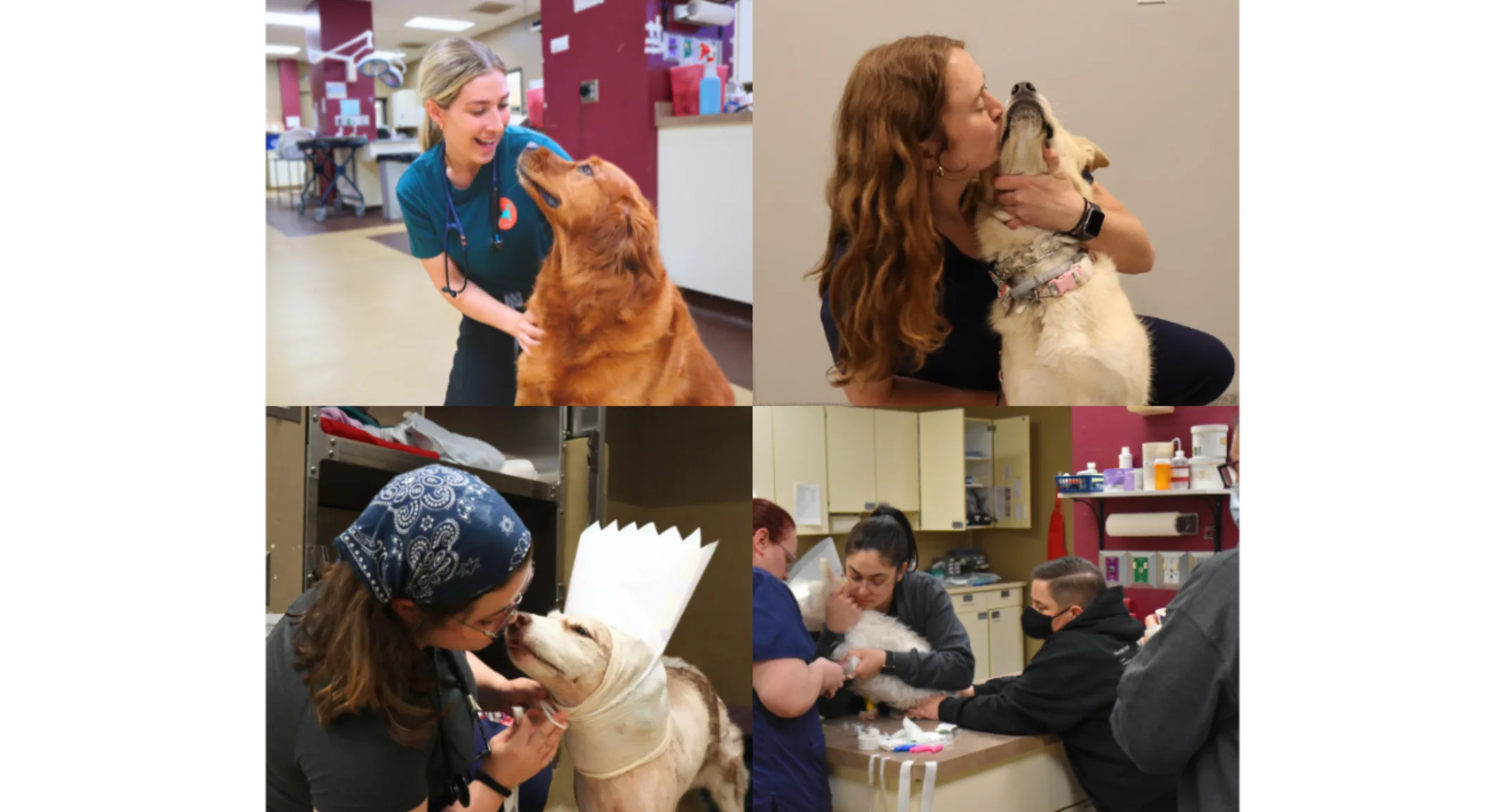Pet Owners Guide: Healthy Pet Checklist
Health Tips

Mission Veterinary Emergency and Specialty has been serving our community since 1992.
When it comes to your pets, we know that keeping them healthy and happy is a top priority. Whether a new or a seasoned pet owner, staying on top of your furry friend's basic care needs is essential. To help ensure your pet thrives, we’ve compiled a comprehensive Healthy Pet Checklist tailored to cover all the basics. From regular vet visits to proper nutrition and exercise, this guide will help you maintain your pet's well-being and catch any potential issues early. Located in the heart of the KC metro area in Mission, KS, our team is here to support you with expert care every step of the way.
DAILY
Freshwater: Ensure your pet has access to clean, fresh water.
Balanced Diet: Feed your pet a nutritionally balanced diet appropriate for their age, size, and breed.
Exercise and Playtime: Provide daily exercise and mental stimulation through walks, playtime, or interactive toys.
Basic Grooming: Check for ticks and fleas (especially in the warmer months). For long-hair breeds, daily brushing can prevent matting and reduce shedding.
WEEKLY
Check Ears: Inspect your pet’s ears for signs of infection, such as redness, odor, or excessive wax, and clean as needed.
Inspect Skin and Coat: Look for any unusual lumps, bumps, or signs of parasites like fleas and ticks.
Dental Care: Gently brush their teeth or provide dental chews to maintain your pet's oral health.
Toys and Environment: Clean and rotate toys to keep your pet engaged and safe from wear and tear.
MONTHLY
Flea, Tick, and Heartworm Prevention: Administer preventive treatments as your veterinarian recommends.
Weight Check: Weigh your pet to ensure they are maintaining a healthy weight.
Litter Box Cleaning (for cats): Perform a deep clean of the litter box, replacing litter and disinfecting the box.
Bathing: Depending on your pet’s breed and lifestyle, give them a bath to keep their coat and skin healthy.
YEARLY
Veterinary Check-Up: Schedule an annual wellness exam with your veterinarian, including a physical exam, vaccinations, and any necessary blood work.
Dental Cleaning: Plan for professional dental cleaning if recommended by your vet to prevent periodontal disease.
Update Microchip and ID Tags: Ensure your pet’s microchip information and ID tags are current with your current contact information.
Routine Lab Work: Include routine blood tests and other diagnostics as your vet recommends, especially for senior pets.
AS NEEDED
Address Behavioral Changes: Monitor for changes in behavior, appetite, or energy levels and consult your vet if something seems off.
Adjust Diet: Change your pet’s diet as they age or if they develop specific health conditions that require a special diet.
Grooming Services: Schedule professional grooming as needed, especially for pets with thick or long coats.
Pest Control: If you notice an infestation of fleas, ticks, or other parasites, apply additional pest control measures.
EMERGENCIES
First Aid Kit: Have a pet-specific first aid kit on hand for minor injuries or illnesses.
Recognize Signs of Emergency: Be aware of symptoms that require immediate veterinary attention, such as difficulty breathing, severe vomiting or diarrhea, sudden lameness, or signs of poisoning.
Transport Plan: Have a plan for quickly transporting your pet to the emergency vet in case of a critical situation.
Emergency Contact Information: Keep the Mission Veterinary Emergency & Specialty contact information and the closest 24/7 emergency vet clinic readily accessible.
Mission Veterinary Emergency & Specialty is open 24/7 for emergency and urgent care needs.
With an ER veterinarian always in the hospital, our team is here to help whenever your sweet pet needs it the most!
Too far from our Mission location? Visit our other 24/7 location, Overland Park Veterinary Emergency & Specialty.
